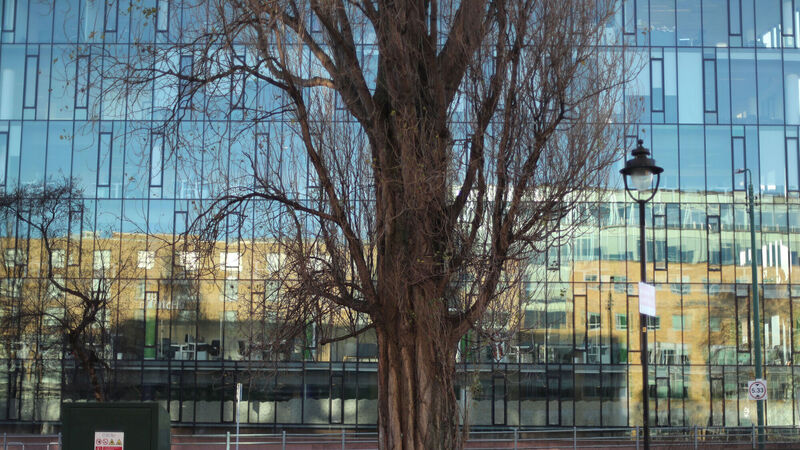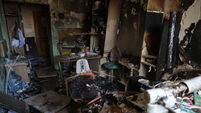More than 370 people seeking international protection in Ireland are homeless

Tents belonging to homeless people in front of a newly constructed office block on Dublin's Grand Canal. Picture: Niall Carson/PA Wire
People fleeing war and persecution who arrive in Ireland and find themselves homeless are travelling across the country in a desperate bid to find shelter.
Some 371 people seeking international protection are now homeless as the State grapples with an unprecedented housing and accommodation crisis and increasing numbers of people seek protection.













